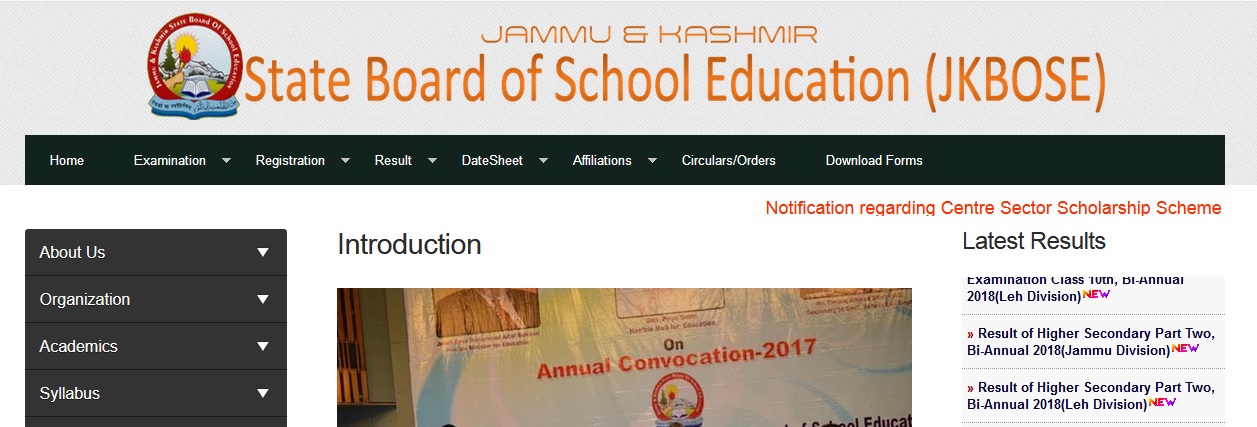jkbose.co.in : Class XI Functional English Paper Sample Jammu & Kashmir State Board of School Education
Name of the Board : Jammu & Kashmir State Board of School Education
Name of the Exam : Class XI
Subject : Functional English
Year : 2008
Document Type : Model Question Paper
Website : jkbose.co.in
Download Model/Sample Question Paper : https://www.pdfquestion.in/uploads/jkbose.co.in/6988-english.pdf
JK BOSE Functional English Paper
Second Term :
Maximum Marks : 50
Time : 2½ Hours
Note : In case of failures/re-appear cases and fresh private candidates; i.e. candidates appearing for the first time after having passed Secondary School Examination, marks secured out of 50 shall be raised proportionately as if obtained out of 75.
Related : Jammu & Kashmir State Board of School Education Class XI Economics Paper Sample : www.pdfquestion.in/6987.html
Long Answer Type Questions :
1. (a) Read the following passages and answer the questions given at the end :
Islamic art is thus a synthesis of many diverse cultural elements, unified by the Koren and the Arabic language. Despite various regional differences, Islamic art has many distinctive features. The most characteristic is probably the arabesque, an ornamentation composed of flowing lines and patterns of flowers, leaves, branches and scroll work.

Calligraphy the art of beautiful writing, became a highly esteemed art for of the Arabs. The use of Arabic script for decorative purposes is found throughout Islamic art. Square, angular script (called Kufic) and round, cursive script (Nagashi) are the principal styles. Maghribi (Western) script, which has extremely round forms of letters, developed in North Africa and Spain.
Questions :
(i) Islamic Art has many distinctive features but there is one common characteristic. Name it. 2
(ii) What is Calligraphy ? Where do we find it ? 2
B) Read the passage carefully and answer the questions given at the end :
The cause of all apparent evil is in ourselves. Do not blame any supernatural being. Neither be hopeless or despondent, nor think that we are in a place from which we can never escape unless someone comes and gives a helping hand. We are like silkworms.
We make the thread out of our own substance and spin the cocoon, and in course of time are imprisoned inside. This network of Karma we have woven around ourselves. And in our ignorance we feel as if we are bound, and weep and wail for help. But help does not come from without; it comes from within ourselves.
Cry to all the Gods of the universe. I cried for years and in the end I found that I was helped. But help came from within. And I had t undo what I had don by mistake. I had to cut the net which I had thrown round myself. I have committed quary mistakes in my life. But mark you, without those mistakes, I should not be what I am today.
I do not mean that you are to go home and willfully commit mistakes; do not misunderstand me in that way. But do not mope because of the mistakes you have committed.
Questions :
(i) The author compares the man to a Silkworm. What does he want to convey through the examples ? 2
Or
How do mistakes help in moulding oneself ?
(ii) Find the odd one out in the choices given in B
(i) To s pend your time, doing nothing feelingsorry for yourself.
(ii) to feel happy
(iii) To be hopeful.
(iii) Find out Synonym for the following :
Spin, help
2. Give the character-sketch of Mike or Gerda. 1
3. Your teacher is dictating notes on Ashoka The Great. Listen to her/him attentively and take notes, which should have all the main points. Teacher’s dictation : “Ashoka”. About the ninth year of his regin Ashoka decided to conquer Kalinga, the centre of which was the modern province of Orissa. He was successful but the struggle was fierce and the slaughter that accompanied it, the diseases that followed it were appalling.
Ashoka records in one of the rock edicts that 1,00,000 were slain and 1,50,000 taken prisoners. The effect of this slaughter on Ashoka’s mind was profound, causing a change of heart only comparable in its suddenness and completeness of that caused in saul by his vision on the road to Damascus.
In the thirteenth Rock edict he records that “his majesty feels remorse on account of the conquest of Kalinga, because during the subjection of a previously unconquered country, slaughter, death and taking of captive people necessarily occurs, where at his majesty, feels profound, sorrow and regret.” Many conquerors may have secretly felt likewise, few have had the courage publicly to acknowledge the fact, but what is beyond all else, remarkable about Ashoka is the thoroughness with which he acted upon his newly-found convictions.
4. Rehman and Ali are old friends. They are meeting after two years. Ali has come to see a doctor ad can’t talk long.